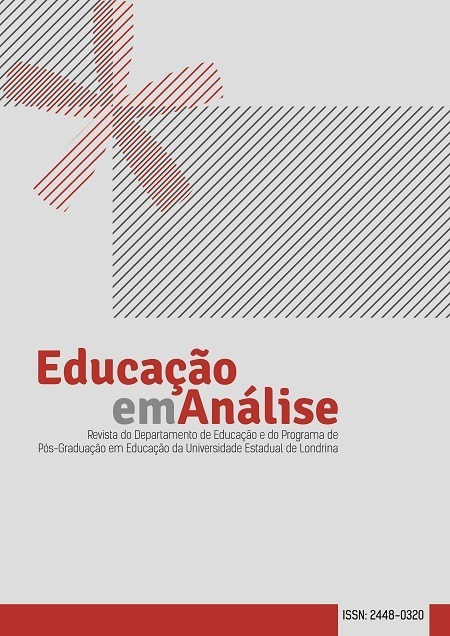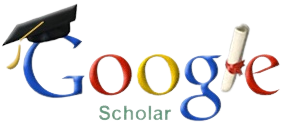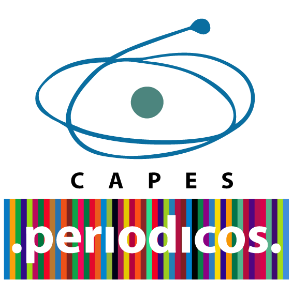Artificial Intelligence and Education: concepts, applications, and implications in teaching practice
DOI:
https://doi.org/10.5433/1984-7939.2023v8n1p116Keywords:
Artificial Intelligence and Education, Pedagogical Practice., Teacher EducationAbstract
Bringing the research fields of Artificial Intelligence and Education closer together has a long tradition, especially concerning programs that support student learning. With the availability of ChatGPT in November 2022, the theme assumes a proportion that challenges the imagination of educators and society in general. This article seeks to position the field of IAED (Artificial Intelligence and Education), rescuing concepts associated with Intelligent Tutoring Systems (ITS), machine learning, data mining, and other aspects used to apply AI techniques in educational applications. It discusses the impacts arising from these systems that compile a large mass of data and transform them, via powerful text generator algorithms, with a quality previously produced only by humans. It ends with reflections on the impacts of this on teaching, changes in strategies, evaluation processes, and necessary adaptations to live with intelligent systems that are here to stay, in a permanent character in society.
Downloads
References
BRACKMANN, Christian Puhlmann. Desenvolvimento do pensamento computacional através de atividades desplugadas na Educação Básica. 2017. 226 f. Tese (Doutorado) - Universidade Federal do Rio Grande do Sul, Porto Alegre, 2017. Disponível em: http://hdl.handle.net/10183/172208. Acesso em: 27 abr. 2023.
CARBONELL, James. AI and CAI: an artificial intelligence approach to computer-assisted instruction. IEEE Transition Man-Machine System, New York, v. 11, n. 2, p. 190-202,1970.
CARNEGIE LEARNING. The cognitive tutor: applying cognitive science to education. Pittsburgh: Carnegie Learning, [2023]. Disponível em: https://www.carnegielearning.com/pages/whitepaper-report/the-cognitive-tutor-applying-cognitive-science-to-education/. Acesso em: 27 abr. 2023.
CIEB - CENTRO DE INOVAÇÃO PARA A EDUCAÇÃO BRASILEIRA. Notas técnicas #16: inteligência artificial na educação. São Paulo: CIEB, 2019. Disponível em: https://cieb.net.br/wp-content/uploads/2019/11/CIEB_Nota_Tecnica16_nov_2019_digital.pdf. Acesso em: 5 jul. 2023.
COURSERA. [Para indivíduos]. [S. l.]: Coursera, 2023. Disponível em: https://www.coursera.org/. Acesso em: 27 abr. 2023.
CROZIER, Jean. Introducing teacher advisor with watson: by teachers, for teachers. IBM, [s. l.], 13 Sep. 2017. Disponível em: https://www.ibm.com/blogs/think/2017/09/watson-teacher/. Acesso em: 27 abr. 2023.
DIAZ, Juan Carlos Torres; MORO, Afonso Infante; CARRIÓN, Pablo Vicente Torres. Aprendizagem móvel: perspectivas. RUSC. Universities and Knowledge Society Journal, Barcelona, v. 12, n. 1, p. 38-49, 2015. Disponível em: https://rusc.uoc.edu/rusc/ca/index.php/rusc/article/view/v12n1-torres-infante-torres/v12n1-torres-infante-torres-en.html. Acesso em: 5 jul. 2023.
DREAMBOX. [Home]. Bellevue: Dreambox Learning, [2023]. Disponível em: https://www.dreambox.com/. Acesso em: 27 abr. 2023.
DUOLINGO. O jeito grátis, divertido e eficaz de aprender um idioma!. [S. l.]: Duolingo, [2023]. 1 software. Disponível em: https://pt.duolingo.com/. Acesso em: 27 abr. 2023.
ELETRONIC ARTS. Fifa Games. [S. l.], EA sports, 2023. 1 jogo eletrônico. Disponível em: https://www.ea.com/pt-br/games/fifa. Acesso em: 27 abr. 2023.
EPUSP - ESCOLA POLITÉCNICA DA UNIVERSIDADE DE SÃO PAULO. Departamento de Engenharia de Computação e Sistemas Digitais. Laboratório de técnicas inteligentes. São Paulo: LTI, [2023]. Disponível em: https://pcs.usp.br/lti/. Acesso em: 27 abr. 2023.
FAVA, Rui. Trabalho, educação e inteligência artificial: a era do indivíduo versátil. Porto Alegre: Penso, 2018.
GIRAFFA, Lucia Maria Martins. Uma arquitetura de tutor utilizando estados mentais. 1999. 177 f. Tese (Doutorado) - Universidade Federal do Rio Grande do Sul, Porto Alegre, 1999. Disponível em: https://www.lume.ufrgs.br/bitstream/handle/10183/17620/000269142.pdf. Acesso em: 27 abr. 2023.
JANDRIĆ, Petar et al. Teaching in the age of Covid-19—The New Normal. Postdigital Science and Education, [London], v. 4, p. 877-1015, 2022. Disponível em: https://doi.org/10.1007/s42438-022-00332-1. Acesso em: 5 jul. 2023.
KHAN ACADEMY. Para todos os alunos, todas as salas de aula: resultados reais. [S. l.]: Khan Academy, [2023].
Disponível em: https://pt.khanacademy.org/. Acesso em: 27 abr. 2023.
KNEWTON. Alta's adaptive learning technology. [New Jersey]: John Wiley & Sons, 2023. Disponível em: https://www.knewton.com/the-power-of-altas-adaptive-technology/. Acesso em: 27 abr. 2023.
LO, Chung Kwan. What Is the impact of ChatGPT on education? a rapid review of the literature. Education Sciences, Basel, v. 13, n. 4, p. 410, 2023. Disponível em: https://www.mdpi.com/2227-7102/13/4/410. Acesso em: 27 abr. 2023.
MATHWAY. Álgebra. [S. l.]: Mathway, [2023]. Disponível em: https://www.mathway.com/pt/Algebra. Acesso em: 27 abr. 2023.
OPENAI. Introducing ChatGPT. [S. l.]: OpenAI, 2022. Disponível em: https://openai.com/blog/chatgpt. Acesso em: 27 abr. 2023.
PASSEIOS virtuais em lugares históricos: você tem que fazer com sua turma. Nova Escola, São Paulo, 12 maio 2015. Disponível em: https://novaescola.org.br/conteudo/4626/passeios-virtuais-em-lugares-historicos-voce-tem-que-fazer-com-sua-turma. Acesso em: 27 abr. 2023.
POKEMONGO. [S. l.]: Niantic, 2023. 1 jogo eletrônico. Disponível em: https://pokemongolive.com/?hl=pt_BR. Acesso em: 27 abr. 2023.
PRENSKY, Mark. From digital natives to digital wisdom: hopeful essays for 21st century education. Corwin: Sage Company, 2012.
REXLAB. Laboratório de experimentação remota. Mato Alto: Rexlab, [2023]. Disponível em: https://rexlab.ufsc.br/. Acesso em: 27 abr. 2023.
RICH, Elaine; KNIGHT, Kevin. Inteligência artificial. 2. ed. São Paulo: Makron Books do Brasil, 1994.
SANTAELLA, Lucia. Humanos hiper-híbridos: linguagens, cultura na segunda era da internet. São Paulo: Paulus, 2021.
SANTOS, Pricila Kohls dos; GIRAFFA, Lucia Maria Martins. TRAJETÓRI@S: personalização da aprendizagem em cursos a distância. Curitiba: EDITORA CRV, 2017.
SMART SPARROW. [Home]. [S. l.]: Smart Sparrow, [2023]. Disponível em: https://www.smartsparrow.com/. Acesso em: 27 abr. 2023.
UNESCO - ORGANIZAÇÃO DAS NAÇÕES UNIDAS PARA A EDUCAÇÃO, A CIÊNCIA E A CULTURA. AI and education: guidance for policy-makers. Paris: UNESCO, 2021. Disponível em: https://unesdoc.unesco.org/ark:/48223/pf0000376709. Acesso em: 5 jul. 2023.
VICARI, Rosa Maria. Tendências em inteligência artificial na educação no período de 2017 a 2030. Brasília: SENAI, 2018. Disponível em: https://acervodigital.sistemaindustria.org.br/bitstream/uniepro/259/1/Sumario_tendencias_web.pdf. Acesso em: 27 abr. 2023.
Downloads
Published
How to Cite
Issue
Section
License
Copyright (c) 2023 Lucia Giraffa, Pricila Khols-Santos

This work is licensed under a Creative Commons Attribution-NonCommercial 4.0 International License.
Os artigos publicados na Revista Educação em Análise estão sob a Licença Creative Commons Atribuição 4.0 Internacional, garantindo Acesso Aberto. Deste modo, os autores mantêm os direitos autorais de seus trabalhos e, em caso de republicação, solicita-se que indiquem a primeira publicação nesta revista. Essa licença permite que qualquer pessoa leia, baixe, copie e compartilhe o conteúdo, desde que a devida citação seja feita. Além disso, autoriza a redistribuição, adaptação e criação de obras derivadas em qualquer formato ou meio, incluindo uso comercial, desde que a atribuição à revista seja mantida.
A revista se reserva o direito de efetuar, nos originais, alterações de ordem normativa, ortográfica e gramatical, com vistas a manter o padrão culto da língua e a credibilidade do veículo. Respeitará, no entanto, o estilo de escrever dos autores. Alterações, correções ou sugestões de ordem conceitual serão encaminhadas aos autores, quando necessário.
As opiniões emitidas pelos autores dos artigos são de sua exclusiva responsabilidade.
























